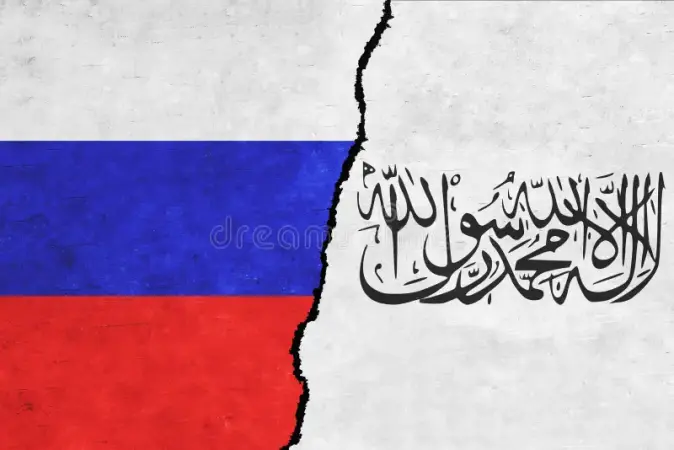In a historic move, Russia has become the first country in the world to officially recognize the Taliban-led government in Afghanistan. The Russian foreign ministry confirmed it received credentials from Gul Hassan Hassan, appointed as ambassador by the Islamic Emirate of Afghanistan, signaling formal diplomatic ties.
The announcement marks a significant shift in global diplomacy, with Russian officials expressing hopes for “productive bilateral cooperation” with the Taliban. Following the decision, Taliban spokespersons praised Russia’s “brave step” and called on other nations—including China—to follow suit.
Although no other country has formally recognized the Taliban regime, nations like China, Pakistan, the UAE, and Uzbekistan have already appointed ambassadors to Kabul, moving closer to legitimizing the group.
Photos from the Afghan embassy in Moscow show celebrations with Taliban officials raising the group's white-and-black flag, highlighting their growing diplomatic confidence. The recognition comes despite ongoing criticism of the Taliban’s harsh restrictions on women and girls, including bans from education, work, and public life.
Russia previously labeled the Taliban a terrorist organization but lifted the ban earlier this year. The Kremlin, under President Vladimir Putin, views cooperation with the Taliban as essential for counterterrorism efforts and regional infrastructure projects, including transport corridors through Afghanistan.
However, security risks remain. Groups like ISIS-K, believed to be behind the deadly 2024 Moscow concert hall attack, continue to operate within Afghanistan. Experts warn that the Taliban’s mixed record on counterterrorism makes Russia’s move a potentially dangerous gamble.
China has maintained diplomatic ties with Afghanistan and may soon follow Russia’s lead. A Chinese foreign ministry spokesperson said Afghanistan "should not be excluded from the international community." Analysts suggest China’s recognition could soon materialize, especially as BRICS nations re-evaluate their stance on Afghanistan.
Still, Western experts caution against rushing to legitimize the Taliban without addressing human rights concerns, particularly the ongoing oppression of Afghan women and girls. Critics argue that recognizing a regime with ties to al-Qaeda could lead to long-term global security risks.
As Russia leads the way in normalizing Taliban rule, the international community faces growing pressure to choose between strategic interests and moral obligations.

